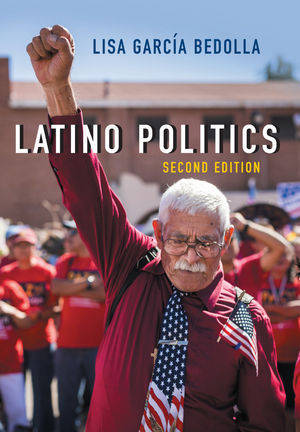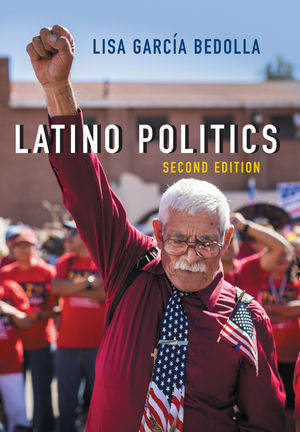
- Retrait gratuit dans votre magasin Club
- 7.000.000 titres dans notre catalogue
- Payer en toute sécurité
- Toujours un magasin près de chez vous
- Retrait gratuit dans votre magasin Club
- 7.000.0000 titres dans notre catalogue
- Payer en toute sécurité
- Toujours un magasin près de chez vous
83,95 €
+ 167 points
Format
Description
Fully revised and updated, the second edition of this popular text provides students with a comprehensive introduction to Latino participation in US politics. Focusing on six Latino groups - Mexicans, Puerto Ricans, Cubans, Dominicans, Salvadorans, and Guatemalans - the book explores the migration history of each group and shows how that experience has been affected by US foreign policy and economic interests in each country of origin. The political status of Latinos on arrival in the United States, including their civil rights, employment opportunities, and political incorporation, is then examined. Finally, the analysis follows each group's history of collective mobilization and political activity, drawing out the varied ways they have engaged in the US political system.
Using the tension between individual agency and structural constraints as its central organizing theme, the discussion situates Latino migrants, and their children, within larger macro economic and geo-political structures that influence their decisions to migrate and their ability to adapt socially, economically, and politically to their new country. It also demonstrates how Latinos continually have shown that through political action they can significantly improve their channels of opportunity. Thus, the book encourages students to think critically about what it means to be a racialized minority group within a majoritarian US political system, and how that position structures Latinos' ability to achieve their social, economic, and political goals.
Using the tension between individual agency and structural constraints as its central organizing theme, the discussion situates Latino migrants, and their children, within larger macro economic and geo-political structures that influence their decisions to migrate and their ability to adapt socially, economically, and politically to their new country. It also demonstrates how Latinos continually have shown that through political action they can significantly improve their channels of opportunity. Thus, the book encourages students to think critically about what it means to be a racialized minority group within a majoritarian US political system, and how that position structures Latinos' ability to achieve their social, economic, and political goals.
Spécifications
Parties prenantes
- Auteur(s) :
- Editeur:
Contenu
- Nombre de pages :
- 312
- Langue:
- Anglais
- Collection :
Caractéristiques
- EAN:
- 9780745664996
- Date de parution :
- 19-01-16
- Format:
- Livre relié
- Format numérique:
- Genaaid
- Dimensions :
- 170 mm x 244 mm
- Poids :
- 698 g

Les avis
Nous publions uniquement les avis qui respectent les conditions requises. Consultez nos conditions pour les avis.






